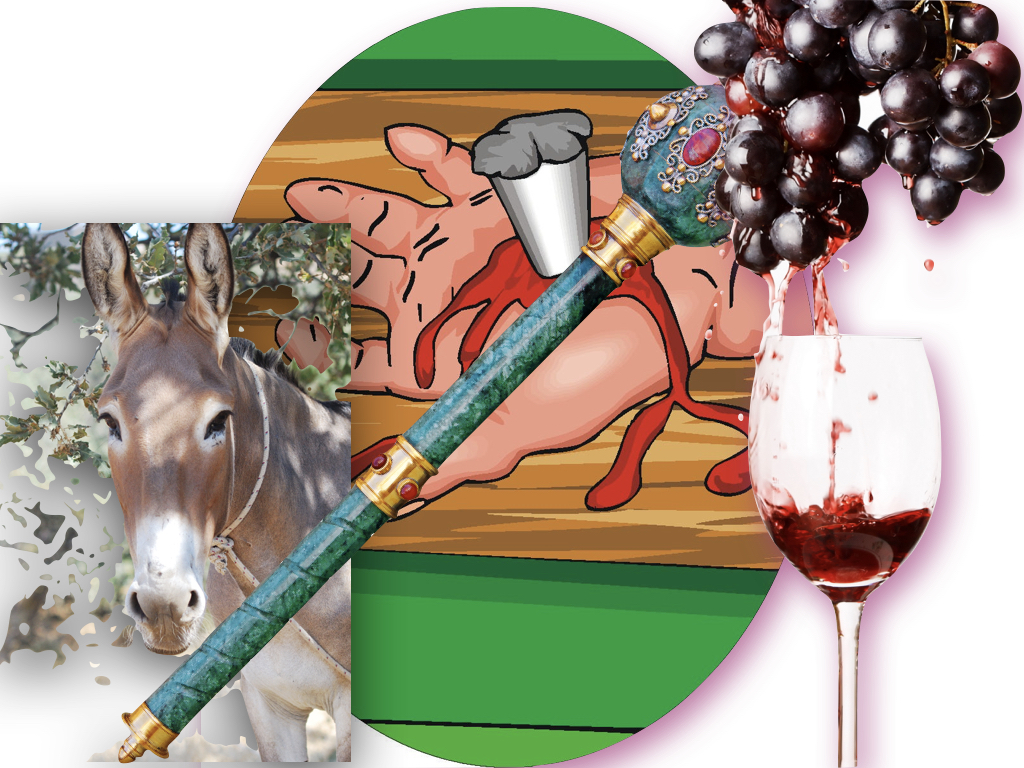Sounds like the title of a C.S. Lewis Christian fiction novel, doesn’t it? Well, when unpacked, these three little verses contain a lot prophetically pertaining to the Messiah. They’re like a riddle. Let’s use the Bible itself to unlock the code.
Genesis 49:10–12, The scepter. Below is my commentary on these verses.
The scepter shall not depart from Judah, nor a lawgiver from between his feet, until Shiloh come; and unto him shall the gathering of the people be. Binding his foal unto the vine, and his ass’s colt unto the choice vine; he washed his garments in wine, and his clothes in the blood of grapes: His eyes shall be red with wine, and his teeth white with milk.
This passage is a clear reference to the Messiah and the Messianic Age (the time when Messiah would come to rule the earth) and has been so recognized by the Jewish sages from time immemorial (The ArtScroll Stone Edition Chumash, p. 279). “The general consensus (with few exceptions) of Rabbinic interpretation is that this phrase [Until Shiloh arrives] refers to the coming of the Messiah …” (The ArtScroll Bereishis/Genesis Torah commentary, p. 2152). In fact, Onkelos [a second-century scholar who translated the Torah (Pentateuch) into Aramaic] in his Aramaic version of the Torah translates this version as follows: “Until the Messiah comes, to whom the kingdom belongs” (ibid.). Rashi (b. 1040 and recognized by Jewish scholars as probably the preeminent Torah commentator of the modern era) “concurs and similarly comments: Until the King Messiah will come…, to whom the kingdom belongs. According to the Midrash, vkha [shiloh] is a composite of ha and uk, [meaning] “a gift to him”—a reference to King Messiah to whom all peoples will bring gifts. See Isaiah 18:7; Psalms 76:12” (ibid., p. 2153). It should not be difficult to see the fulfillment of this rabbinic understanding in the magis’ giving of gifts to the young child Yeshua (Matt 2:11).
Are there any illusions here to the incarnation or virgin birth of the Messiah? Of the incarnation we read the following in The ArtScroll Bereishis/Genesis Torah commentary:
Midrash Tanchuma preserves an opinion that vkha [shiloh] is derived from vhka [shil-yah] meaning “little child, (lit. the amniotic sac in which the fetus is formed: comp. Deut 28:57).” Thus, the passage means: “Until his scion (i.e. Messiah) comes” (ibid., p. 2153).
Of course the same commentators in the same passage, while readily admitting that Continue reading


